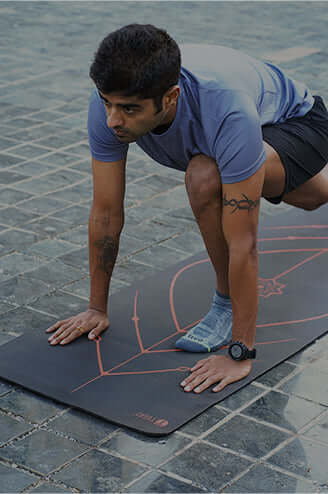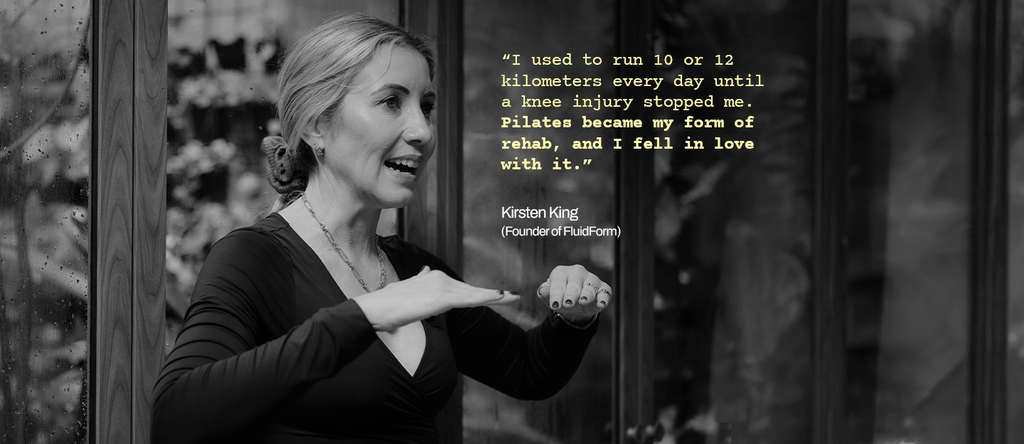There comes a point in every training journey when the numbers stop moving.
Your 10K time refuses to drop. The scale won’t budge. The barbell that once felt lighter with every session suddenly feels heavier again.
It’s not that you’ve stopped working hard if anything, you’re probably working harder. You’re training consistently, eating right, maybe even sleeping better. And yet… progress stalls.
Welcome to the plateau.
The Wall We All Hit
Every athlete, from the weekend runner trying to beat their half-marathon PB, to the seasoned lifter chasing that elusive 100-kilo bench - eventually meets this invisible wall. It’s the body’s way of saying, “I’ve adapted.”
And that’s the key word here: adaptation.
In the beginning, everything feels linear. You start running, and your stamina improves every week. You start lifting, and the weights climb fast. But over time, your body becomes efficient, perhaps too efficient. The same workouts that got you this far, now barely register. Progress slows, not because you’re failing, but because your body has caught up.
This isn’t a sign that you’re doing something wrong. It’s a sign that you’ve been doing something long enough to matter.
When Working Harder Stops Working
Most people respond to a plateau the same way - by pushing harder. More miles, more reps, fewer calories. But effort doesn’t always equal progress. In fact, sometimes, it’s the opposite.
I remember a friend training for his first marathon who hit a wall three months out. He was running six days a week, logging higher mileage than ever, but his pace was dropping, and he felt perpetually tired. The solution wasn’t another long run. It was rest. Two weeks of active recovery later, he came back stronger — setting a personal best on race day.
Hard and Smart work aren’t mutually exclusive. In fact, I believe they’re subsets of each other. To see real long term progress, you can’t do one without the other.
The Art of the Reset
If you’ve been pushing for months without a break, a short rest period - a week or two - can work wonders. Call it a physical and mental reset. It’s a chance for your muscles, joints, and nervous system to catch up to your ambition.
Not ready to completely stop? Try a deload week; lighter weights, higher reps, slower tempo. It’s still work, but it gives your body the space it needs to recover and rebuild. Progress doesn’t always look like forward motion. Sometimes it looks like slowing down so you can move forward again.
Change the Script
If rest isn’t the issue, then routine probably is.
Your body craves novelty. When the same exercises, weights, and rep schemes repeat for too long, the results taper off. That’s your cue to shake things up. Swap your barbell squats for Bulgarian split squats. Trade a long steady-state run for interval training. Move your workouts to a different time of day.
Small changes create new stimulus, and new stimulus means new adaptation.
Food: The Missing Variable
There’s another reason progress might have slowed: your nutrition hasn’t evolved with your training.
If your goal is fat loss, eating too little for too long can actually backfire. Your metabolism downshifts to conserve energy, and fat loss halts. Paradoxically, the fix might be to eat more; a few extra calories to remind your body that it’s safe to let go.
If your goal is muscle gain, the reverse holds true. You might simply not be fueling enough. Progress requires surplus calories, protein, and patience.
The right food isn’t just fuel. It’s data. Listen to what your body’s been trying to tell you.
The Silent Factor: Sleep
There’s one other variable that silently dictates your progress — sleep. It’s the most underrated performance enhancer out there. Growth hormone spikes, muscles rebuild, fat burns, and the nervous system resets, all while you’re asleep.
No supplement, no hack, no training tweak will ever outwork poor sleep. Aim for seven hours of quality rest, and you’ll be surprised at how quickly your progress reignites.
The Plateau as a Sign of Growth
Here’s the truth: if you’ve hit a plateau, congratulations. You’ve earned it. It means you’ve been consistent long enough to reach the limits of your current self. That’s the moment real athletes are made - not in the easy weeks of visible progress, but in the quiet ones where nothing seems to move.
Breaking through a plateau isn’t about finding a magic trick. It’s about patience, strategy, and perspective. Take a step back. Adjust the plan. Eat. Rest. Sleep. Repeat.
Progress isn’t linear, it’s cyclical. And if you stay the course, the next upswing is always around the corner.
Because sometimes, to go forward, you first have to pause.
About the author :
Prateek Lata is part of Team TEGO and a NASM-certified strength coach with a deep understanding of performance, recovery, and the everyday athlete mindset.







